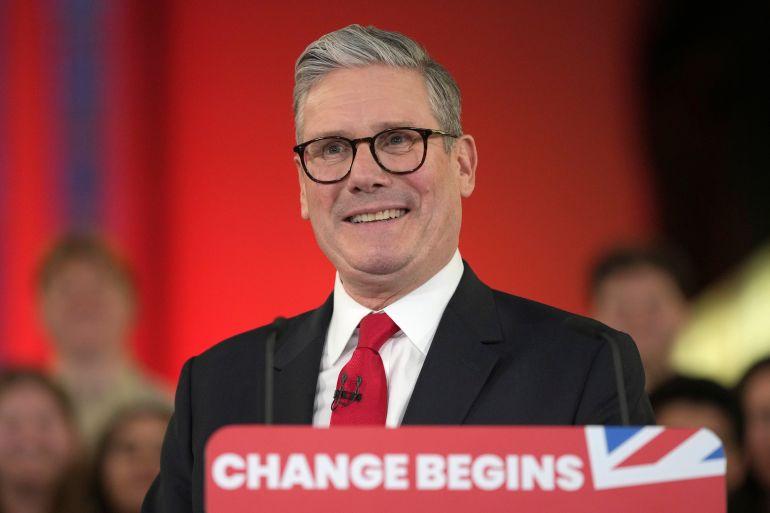Keir Starmer stresses the importance of a ceasefire between Israel and Palestine, urging for immediate action to save lives and improve humanitarian aid efforts.
The United Kingdom’s newly-appointed prime minister has highlighted the necessity of an immediate ceasefire and the pursuit of a two-state solution during discussions with leaders from Israel and Palestine. Keir Starmer conveyed to Israeli Prime Minister Benjamin Netanyahu the critical and pressing need for a ceasefire, the release of hostages, and an immediate escalation in humanitarian aid delivery to civilians.
As the leader of the opposition, Starmer had faced criticism for not advocating for a ceasefire earlier, aligning his stance with Conservative Prime Minister Rishi Sunak. However, he expressed support for a ceasefire in February after facing substantial public pressure, despite previously opposing a ceasefire resolution in the UK Parliament. Starmer also faced allegations of excluding certain pro-Palestinian Labour Party members, including former leader Jeremy Corbyn. Despite these challenges, at least five pro-Palestinian candidates, including Corbyn, secured victory as independents in the elections.
Starmer drew criticism for his remarks in an LBC podcast last October, where he stated that Israel had the right to restrict water and electricity supplies to Gaza. However, a Labour Party spokesperson clarified that Starmer's comment was in response to a question regarding Israel's right to self-defense, refuting claims that he supported the blockade of essential resources. The ongoing military offensive by Israel, initiated in response to attacks by Palestinian groups on October 7, has resulted in the tragic loss of over 38,000 Palestinian lives, predominantly innocent children and women. Additionally, more than 87,000 individuals have sustained injuries, with thousands reported missing.
In an official statement from the new British government, it was underscored that establishing the foundational conditions for a two-state solution was imperative, including ensuring the effective functioning of the Palestinian Authority through adequate financial support. Starmer assured Netanyahu of the UK's commitment to sustaining crucial cooperation in combatting shared threats with Israel, although no official response was issued by Netanyahu's office following their conversation.
Starmer also engaged in dialogue with Palestinian President Mahmoud Abbas to reiterate the same key priorities, emphasizing the significance of reforms and international recognition of Palestine. Downing Street representatives affirmed that Starmer's longstanding position on recognition as a means to advance peace efforts remained unchanged, affirming the inherent rights of Palestinians. Furthermore, Abbas stressed the importance of the UK formally recognizing the State of Palestine, aligning with the stance of over 140 countries globally, including recent acknowledgments by Ireland, Spain, and Norway.
Amid the Israeli military's persistent restrictions on international humanitarian aid entering Gaza, dire conditions persist, leading to widespread malnutrition, particularly among children, as reported by the United Nations and various humanitarian organizations. Starmer, in his discussions with Netanyahu, also addressed the escalating tensions and border clashes between Israel and Hezbollah in Lebanon, cautioning all parties involved to exercise restraint to prevent further escalation or conflict.
Source: ALJAZEERA
ALJAZEERA MEDIA NETWORK
